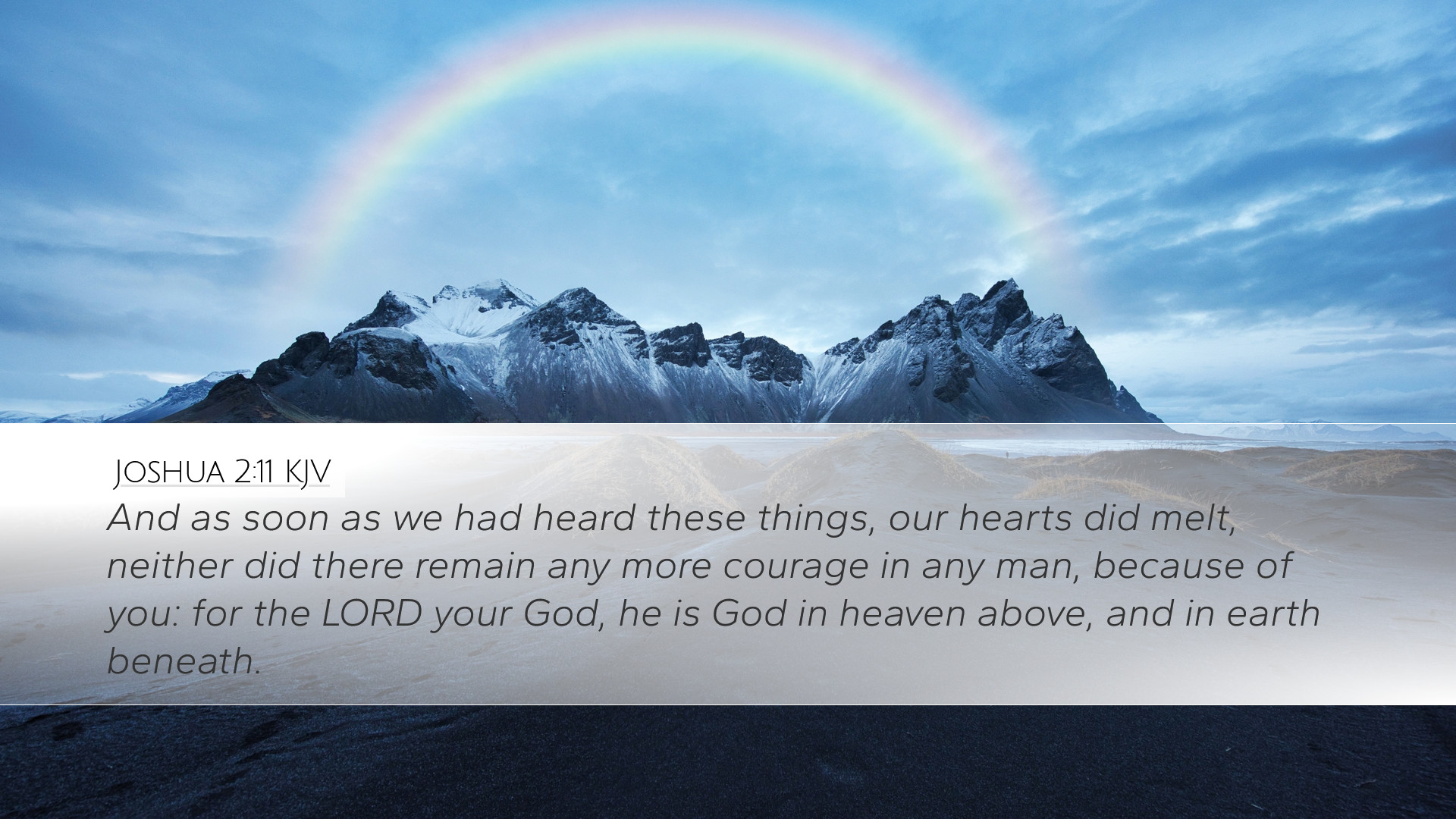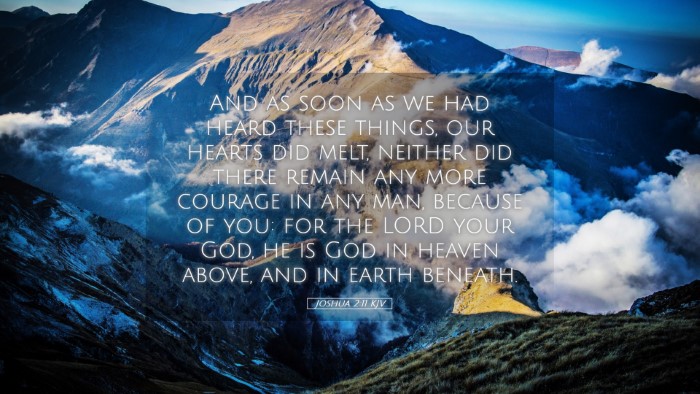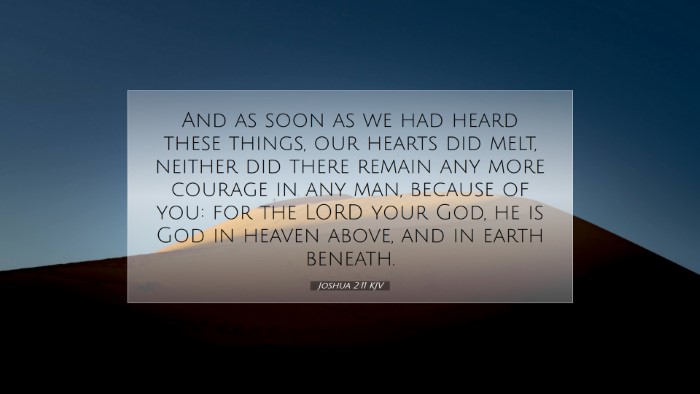Old Testament
Genesis Exodus Leviticus Numbers Deuteronomy Joshua Judges Ruth 1 Samuel 2 Samuel 1 Kings 2 Kings 1 Chronicles 2 Chronicles Ezra Nehemiah Esther Job Psalms Proverbs Ecclesiastes Song of Solomon Isaiah Jeremiah Lamentations Ezekiel Daniel Hosea Joel Amos Obadiah Jonah Micah Nahum Habakkuk Zephaniah Haggai Zechariah MalachiJoshua 2:11
Joshua 2:11 KJV
And as soon as we had heard these things, our hearts did melt, neither did there remain any more courage in any man, because of you: for the LORD your God, he is God in heaven above, and in earth beneath.
Joshua 2:11 Bible Commentary
Commentary on Joshua 2:11
Introduction
Joshua 2:11 states, "And as soon as we heard these things, our hearts did melt, neither did there remain any more courage in any man, because of you: for the Lord your God, he is God in heaven above, and in earth beneath." This verse encapsulates the recognition of God's sovereignty by the inhabitants of Canaan in response to the Israelite spies' visit. This commentary draws insights from respected public domain theologians such as Matthew Henry, Albert Barnes, and Adam Clarke, framing a comprehensive exploration suitable for pastors, students, and scholars.
Contextual Analysis
Historical Context
The verse appears in the narrative of Joshua's conquest of Canaan, specifically during the reconnaissance mission conducted by Israelite spies. This account occurs after the Israelites have been liberated from slavery in Egypt, led by Moses, and subsequently wandered in the desert for forty years. The transitionary leadership of Joshua signifies a pivotal moment as they prepare to enter the Promised Land.
Literary Context
This verse concludes the report of Rahab, a Canaanite woman who recognized the power and presence of the God of Israel. Her declaration serves not only as a personal testament of faith but also as a prophetic acknowledgment of the coming judgment against her people. The statements made by Rahab illustrate the impending doom of Jericho, fortifying the theme of divine judgment intertwined with human response.
Theological Insights
Fear and Faith
The phrase "our hearts did melt" illustrates a profound psychological and spiritual reaction. According to Matthew Henry, fear replaces courage when one becomes aware of God's impending judgment. This melting of hearts indicates a recognition of the Almighty's power, evoking a contrast between faith in God and the frailty of human resolve. Adam Clarke elaborates, emphasizing that fear can lead to either despair or faith, depending on one's response to God's revelation.
- Recognition of Divine Authority: The acknowledgment of God as “He is God in heaven above, and in earth beneath” reinforces the monotheistic belief and the exclusive sovereignty of the Lord. It conveys a theological assertion that transcends geographical and cultural barriers.
- Human Inadequacy: The phrase reflects the innate awareness of humanity's limitations in facing divine forces. Albert Barnes points out that this realization underlines the necessity for leaders and individuals to acknowledge God’s supreme power, thus fostering humility.
Practical Applications
Call to Recognize God's Power
This passage offers a potent reminder for modern believers of the importance of recognizing and submitting to God's authority in all aspects of life. The Canaanites' fear serves as a cautionary tale about ignoring the influence of God.
- Courage in Adversity: Just as the Canaanites lost their courage, believers today must cultivate spiritual strength, rooted in the acknowledgment of God's sovereignty rather than succumbing to fear amidst worldly challenges.
- Testimony of Faith: Rahab’s confession leads to her ultimate salvation in contrast to her city's doom. This underscores the principle that personal testimonies of faith can lead others to salvation.
Conclusion
The insights drawn from Joshua 2:11 empower believers to both acknowledge their fear in the face of divine power and to respond through faith. The transforming nature of recognizing God as sovereign can lead not only to personal transformation but also to collective salvation, as illustrated by Rahab's faith amid hopelessness. The reflections provided by Matthew Henry, Albert Barnes, and Adam Clarke together call today’s readers to remember the same God who held sway in Heaven and on earth is still sovereign today.


